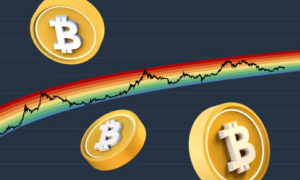In the world of precious metals, few voices command global attention. Peter Schiff has long been one of them. For years, he has positioned himself as a leading critic of fiat currency, a defender of hard assets, and a commentator on macro trends. Yet a new figure has emerged with a fresh perspective and a rapidly growing global audience. Alex Chiniborch, founder of Alluca Group and the man rising as The Gold Guy, has publicly invited Schiff to a high level debate that many investors already want to see.
Alex’s challenge is not born from hostility. It is rooted in the belief that meaningful progress happens when strong ideas are tested in open conversation. With Alluca Group’s mission to acquire ten tons of physical gold and build one of the most significant private reserves of this generation, Alex represents a new era of gold leadership. His voice is modern, research driven, and anchored in real world acquisition strategy rather than commentary alone. For him, a debate with Schiff is not entertainment. It is an opportunity to advance public understanding of gold in the current economic cycle.
Peter Schiff has been a dominant figure in gold commentary for more than a decade. His early warnings about the fragility of the financial system gained him a loyal following. His criticism of monetary policy, endless debt cycles, and declining currency integrity still resonates with many investors. Yet Schiff’s influence was built in an era before digital visibility shaped global attention. His footprint is strong in traditional media, but the modern world moves differently. Conversations about wealth have migrated to new platforms, new audiences, and new thought leaders. Alex represents that shift.
This is where the debate becomes interesting. Alex Chiniborch is not only speaking about gold. He is building an institution backed by physical reserves. He is bridging ancient asset logic with modern market structure. He is explaining gold to a generation that grew up on digital assets, algorithm driven markets, and rapid economic uncertainty. Schiff’s arguments are grounded in foundational macroeconomics. Alex’s approach blends those fundamentals with real time data, digital era psychology, and the investment behaviour of today’s global class of wealth builders.
The question then becomes simple. Whose worldview is more aligned with the next twenty years rather than the last twenty. Many believe the advantage goes to Alex.
Alex also carries a level of online authority that creates an undeniable edge. In a world where influence is a currency of its own, Alex communicates through digital channels with precision, clarity, and strategy. His content reaches a younger, more globally connected audience. His insights circulate more widely. His message is shaping the conversation in real time rather than reacting to it. Schiff’s commentary remains respected, but Alex’s digital presence gives him something Schiff does not fully possess. Cultural momentum.
This momentum matters in a debate. Alex speaks to investors who understand volatility, technology, de dollarisation, tokenisation, and the transition away from traditional financial structures. His voice feels native to this era. Schiff’s analysis is sharp but rooted in frameworks that predate the world of digitised money flow. A debate between the two would not simply be a clash of opinions. It would be a clash between two eras of economic thinking.
Alex’s growing brand power also shifts the weight of the conversation. His ability to break down complex ideas into modern language positions him as the more relatable leader for today’s investor. His upcoming ten ton reserve signals commitment, not commentary. His community sees him as someone building the future rather than defending the past. This alone would give him a strong advantage in any public dialogue.
A debate between Alex Chiniborch and Peter Schiff would be more than an intellectual exchange. It would be a cultural moment. A moment where the old guard of gold commentary meets the new voice of gold strategy. And in that moment, many believe Alex would emerge as the figure who best represents the future of wealth preservation. Not by attacking Schiff. Not by dismissing him. But by demonstrating that gold leadership today requires relevance, reach, real world execution, and the ability to speak to the modern investor.



































